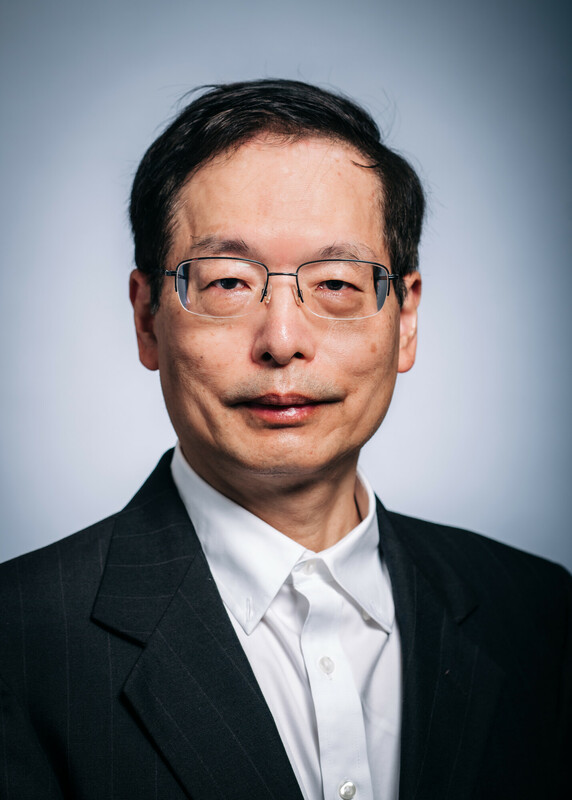By Christina Crowe
Shu Chen, Ph.D., Ona Faye-Petersen Endowed Professor, Neuropathology, has been awarded an R01 grant funding his research on biomarkers for early diagnosis of mixed pathologies in Alzheimer’s disease and Alzheimer’s disease-related dementias. The grant, from the National Institute on Aging, is funded at $3.68 million over five years, through 2028.
The goal of the project is to develop and validate diagnostic biomarkers for Alzheimer’s disease and related dementias, such as tauopathies, Lewy body dementia and their comorbidities, using easily accessible peripheral tissues, such as skin.
“Currently we don’t have a definitive diagnosis for Alzheimer’s disease and related dementias in living patients—it requires an autopsy,” Chen says. “The brain is most inaccessible. We have devised an assay to measure misfolded protein—including in colon biopsy and the skin—and hope to develop a noninvasive biomarker that can be used for routine diagnosis during a clinic visit.”
Chen’s team first published a paper on the topic of using a skin test to help diagnose Parkinson’s disease in September 2020, in JAMA Neurology, titled, “Skin α-Synuclein Aggregation Seeding Activity as a Novel Biomarker for Parkinson Disease” (https://jamanetwork.com/journals/jamaneurology/fullarticle/2771032). They then expanded their research into other diseases related to protein misfolding and aggregation, including dementia with Lewy body and multiple system atrophy, which are due to the formation of alpha-synuclein aggregates. The research team will further develop analogous assays for detection of tau protein aggregates that features in Alzheimer’s and other tauopathies.
“Our study may ultimately help early diagnosis to improve patient care and aid the development of therapeutics for patients living with dementias,” Chen says.
Chen came to UAB Pathology in late 2021 from Case Western University, where he served as the associate director of the National Prion Disease Pathology Surveillance Center for five years. That work led to his interest in studying Alzheimer’s and similar diseases where proteins behave like prions, accumulating amyloid proteins—a common theme of neurodegenerative diseases. This area of research for biomarkers on Alzheimer’s and Parkinson’s diseases is very active, Chen says, however the challenge is to find ways to differentiate these diseases and related conditions, as their symptoms could overlap.
“In clinical trials, if you can’t differentiate between the diseases, treatment cannot be successful,” he says. “At autopsy, more than half of the Alzheimer’s patients have the Lewy bodies, which is a marker for Parkinson’s and dementia. If we can’t differentiate, we can’t accurately target treatment.”
Chen explains that their work stands to impact how patients selected for clinical trials. At present, there are not many options for preventing, curing or even relieving Alzheimer’s disease or dementia symptoms. Being able to classify this in the living patient is very important for testing the efficacy for any therapy.
Chen posits that, “more than 90% of the clinical trials in Alzheimer’s disease and other diseases of dementia fail,” and one of the reasons is they may not target the right person because they might be misdiagnosed or the trial may be too late to start—they may already have full blown pathology. So the other aim of this study is to develop a test to identify patients with early pathology, because, as he says, “the earlier you start the therapy the better.”
As a faculty of neuropathology for 30 years, Chen says he has witnessed the devastating effect of neurodegenerative diseases on both patients and their families.
“It is a huge challenge to take care of patients with dementia,” he says, and describes how often the family members or caregivers often serve as the control subject in these studies, giving additional support to research in this field by helping the physician to record the events, symptoms, medications and more.
“The help from the patients’ family and caregivers is very important, and we as researchers appreciate this very much,” he says.
Chen's UAB collaborators on this R01 grant include Rati Chkheidze, M.D., Assistant Professor, Neuropathology Division, Department of Pathology, and Drs. Marissa Natelson Love, David Standaert, Erik Roberson, David Geldmacher, Talene Yacoubian, and Charles Murchison from Department of Neurology. External collaborators include Dr. Thomas Beach from Banner Sun Health Research Institute in Sun City, Arizona, and Dr. Fabio Moda from IRCCS institute of Neurology in Besta, Italy.